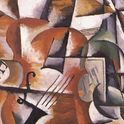“I was not talking about you,” posted the writer—and current president of the Royal Society of Literature—Bernadine Evaristo to Salman Rushdie on 9th February. She was referring to some lines of hers in an article for the Guardian about her organisation and “freedom of speech” (those scare quotes are hers). “The society has a remit to be a voice for literature,” she had written. “It cannot take sides in writers’ controversies and issues, but must remain impartial.”
If Evaristo wasn’t talking about Rushdie but was referring—like a teacher at a school assembly after vandalism in the toilets—to an encoded sinful somebody, I think it must have been me. Mine is the other name mentioned in the numerous, furious, often incomprehensible press reports about the ongoing series of controversies that have plagued the RSL, previously a sleepy and careful organisation dedicated to honouring accomplished writers. And, though apparently an unprecedented five fellows have resigned or considered resigning in the last 12 months, mine is the only actual resignation letter in the public domain. I sent that letter back in August 2023, so I wasn’t too surprised by Evaristo’s implication, in her article, that my concerns were beneath the RSL council’s consideration. I got that message last year—when no one replied.
While I would never claim to be a writer of Rushdie’s status and have certainly not had to endure anything like a fatwa, I nevertheless believe—without in any way wishing it—that I’m involved in something rather bigger than just a personal squabble in literary circles. In fact, I fear that my cancellation in 2021—which began over the phrases “chocolate-colored skin” and “almond-shaped eyes” in my Orwell Prize-winning memoir, and ended with all my books being depublished—has come to symbolise a dividing point between silos of literary opinion, a red line between views on a number of issues: cancel culture; “harm” caused by language; the responsibilities of publishers; the freedom of writers to imagine lives other than their own; and, perhaps above all, on “sensitivity readers”, the new brand of editor who scour pieces of literature looking for what they deem to be offensive content.
Crudely—and the binaries are crude, and grinding—to support me is to be part of a silo which deplores sensitivity readers, and to deplore me is to support a revolutionary army intent on using literature to advance social justice. The RSL is now firmly on the latter side. Rebranding itself as “200 years young” and a “charity that believes literature is for everyone”, it has made radical changes to its elitist election processes and rapidly increased its fellowship. This has led to more controversy because literary personalities are also deemed to be part of the silos. And so, to support me is to oppose Sunny Singh and side with Philip Pullman; to oppose Joanne Harris and side with JK Rowling; to be in favour of Lionel Shriver and against Juno Dawson; to be for the Times letter and against the Second Shelf one—whether or not you know anything about these people or their views or have read any of their books, and whether or not you wish to sign up to anybody’s entire slate of opinion or open letter.
Literary insiders know all this; outsiders are baffled by it. Thus when the RSL was called on to speak up for Rushdie after the knife attack on him in August 2022 and the organisation’s director and council failed to because they are “not a political organisation”, and in case they “might give offence”, many were bewildered—give offence to whom? But some knew the answer.
Another venerable institution, the Society of Authors, and the RSL had become close organisations, supporting each other in their increased radicalisation, not least over my cancellation. I understand that the author Joanne Harris, chair of the SoA, took a leading part in that. Harris and SoA’s CEO, Nicola Solomon, were then elected fellows of the RSL in the summer of 2022. Then, just weeks later, Harris ran herself into trouble with a facetious poll on X about death threats—and at the very same time as I had written to the SoA about Harris’s treatment of me. Not only did the free speech concerns raised by the attack on Rushdie belong, generally speaking, in the “wrong” silo of opinion, but poor Joanne would presumably be upset if her friends at the RSL added to her troubles by raising the issue at this delicate juncture.
More recognition came at last year’s RSL summer party. It’s always an important occasion—the only one where the RSL functions as a society, really—and 2023 was a bumper occasion because a record number of new fellows, elected under the new rules, were being inaugurated. “The greatest number ever of literature’s finest in one room,” chair Daljit Nagra called them, before joking that he was “blushing ever so chocolatey”—a clear reference to the controversy about my book—and adding, in case anyone had missed the point, “and I can say that.” The laughter that followed drew the room together: the new members could express their fellowship, and demonstrate they were all in the correct silo of opinion, by joining in a jeer against me.
Was that laughter the “impartial” “voice of literature” speaking, high above “writers’ controversies”? It seemed extremely partial to me, and I can’t believe that, even in the happy, self-righteous atmosphere of the party, it can have felt fully disinterested to anyone. In the audience was Sunny Singh, just elected as a fellow despite—or perhaps even because of—her hounding of me and Pullman. Singh’s most recent contribution to the debate on “chocolate-colored skin” was, following an article in the Guardian which mentioned I was grieving the death of both my parents with Covid, to start a competition on X “to describe the weepy lady writer”. When her followers responded with analogies to sausages and vomit, Singh enthusiastically encouraged them and applauded.
Writers are sensitive, and we know what bullying is. We are famous for suffering from it at school. It’s surely shameful for many to find themselves witness to it—or worse—again, whatever their opinion of a particular metaphor.
Shame is sticky, so I suspect several of the writers at the party took some home to their desks to harass their imaginations. In fact, I sometimes wonder whether my fate bothers writers more on a day-to-day level than Rushdie’s. His challenge, and response, have been heroic in scale, and we don’t mind thinking about being heroes. Mine, by comparison, is petty and sordid. He is threatened by people we do not know and so can imagine confronting bravely; the people who destroyed my reputation were friends and colleagues. He was stabbed by a maniac; I was abandoned by a mainstream publisher. He went into hiding; I have merely lost all invitations and work. Becoming the victim of an international fatwa is unimaginable for most middle-ranking writers; losing your agent and contracts and having your books pulped are commonplace, tedious paranoias.
It’s the mundane, accessible anxieties, I think, that are most likely to get between word and execution when we sit down to write. “Could this simple phrase have me accused of child abuse and racism and destroy my career?” the writer worries. And I am there to say: “Yes, absolutely, that could happen, and afterwards, everyone you know will laugh at you at the RSL summer party, and you will want to die.”
And that is why I believe my case is a freedom of speech issue—without scare quotes. It’s about freedom of thought. Censorship is creeping and insidious and happens in the imagination: only writers can stand up for other writers on that point. If the Royal Society of Literature didn’t want to speak up for me they should have at least refrained from using me as a whipping boy, because that degrades their own discourse, and discourse—as opposed to, say, world politics—is an area where the RSL can genuinely hope to lead.
As Evaristo said, the RSL should be impartial, and not take sides in writers’ controversies and issues. The problem is that they haven’t been, and they did.












